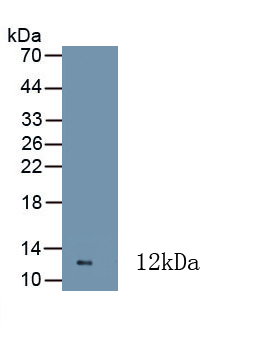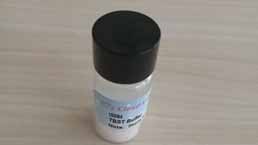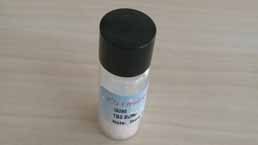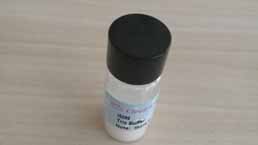Monoclonal Antibody to Calprotectin (CALPRO) 

MRP-8/MRP-14; S100A8/A9
- UOM
- FOB US$ 150.00 US$ 350.00 US$ 500.00 US$ 1,250.00 US$ 5,000.00
- Quantity
Overview
Properties
- Product No.MAK504Hu21
- Organism SpeciesHomo sapiens (Human) Same name, Different species.
- ApplicationsWB; IHC; ICC; IP.
If the antibody is used in flow cytometry, please check FCM antibodies.
Research use only - DownloadInstruction Manual
- Category
- SourceMonoclonal antibody preparation, Host Mouse
- Ig Isotype IgG2b Kappa, Clone Number C1
- PurificationProtein A + Protein G affinity chromatography
- LabelNone
- Immunogen RPK504Hu01-Recombinant Calprotectin (CALPRO)
- Buffer Formulation0.01M PBS, pH7.4, containing 0.05% Proclin-300, 50% glycerol.
- TraitsLiquid, Concentration 1mg/mL
Sign into your account
Share a new citation as an author
Upload your experimental result
Review

Contact us
Please fill in the blank.
Specifity
The antibody is a mouse monoclonal antibody raised against CALPRO. It has been selected for its ability to recognize CALPRO in immunohistochemical staining and western blotting.
Usage
Western blotting: 0.5-2µg/mL;
Immunohistochemistry: 5-20µg/mL;
Immunocytochemistry: 5-20µg/mL;
Optimal working dilutions must be determined by end user.
Storage
Store at 4°C for frequent use. Stored at -20°C in a manual defrost freezer for two year without detectable loss of activity. Avoid repeated freeze-thaw cycles.
Stability
The thermal stability is described by the loss rate. The loss rate was determined by accelerated thermal degradation test, that is, incubate the protein at 37°C for 48h, and no obvious degradation and precipitation were observed. The loss rate is less than 5% within the expiration date under appropriate storage condition.
Giveaways
Increment services
Citations
- A Novel Combination of Calprotectin and CXCL12 for Predicting Malignancy in Patients with Exudative Pleural EffusionPubMed: 26632726
- Effects of (-)-Sesamin on Chronic Stress-Induced Anxiety Disorders in Micepubmed:27995494
- Immune Modulating Topical S100A8/A9 Inhibits Growth of Pseudomonas aeruginosa and Mitigates Biofilm Infection in Chronic Wounds.pubmed:28672877
- Multiplex Immuno-MALDI-TOF MS for Targeted Quantification of Protein Biomarkers and Their Proteoforms Related to Inflammation and Renal DysfunctionPubmed:29420882
- Maternal serum calprotectin level in intrahepatic cholestasis of pregnancy34254410
- Influence of Rectal Ozone Application on the Intensity of Free Radical Destruction of Lipids and Intestinal Proteins in the Dynamics of Experimental ColitisPubmed:35622259
- Serum Calprotectin and Iron Metabolism Biomarker Levels in Behçet's Disease















